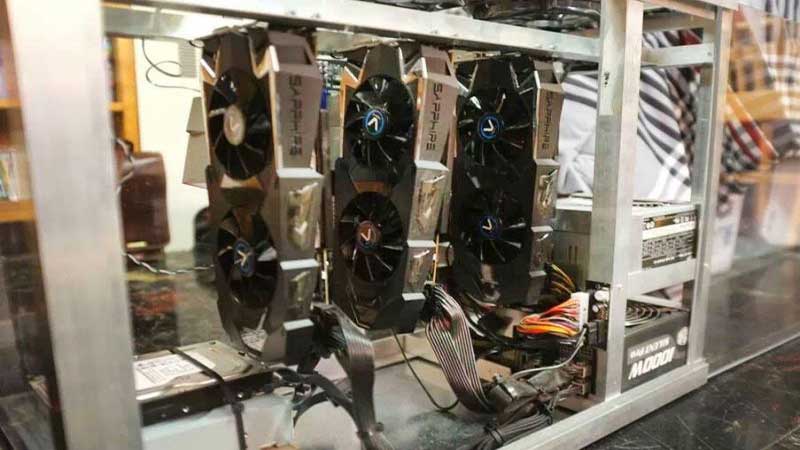The new miners: wave of cryptocurrency mining at colleges, businesses raise hacking concerns


Instead, Cines planned on using it to make money while he was out experiencing campus life.
“I had basically a box, maybe a foot and a half by a foot and a half tall. It was sitting in, right at the foot of my bed. Had several graphics cards,” said Cines, who graduated Penn State in 2017.
That odd computer box was what is known a cryptocurrency miner, a special machine used to find virtual currency. Cryptocurrency mining is a process used to create digital coins, like bitcoin. Computers are used to solve complex math problems to find coins that can be potentially worth a fortune.
Many currencies require specialized, high powered machines that use large amounts of electricity, and create excess heat.
“It felt like passive income because when you’re at school, when you’re taking an exam or you’re doing your homework, you’re prepping or going to student meetings, it’s still back in your dorm room making money for you,” Cines told CNBC.
But there was a problem…too much heat.
“It was unbearable… I had fans running, I had the window open,” Cines said, describing what it was like when we first plugged his homemade miner in. “The first day I was living there, went to Home Depot, bought some dryer tubes, strapped them to the front, and used that to push all the hot air outside of my room.”
But the heat is not the only issue. Some cryptomining software contains malware that could attack the campus’s network.
“Cryptomining is largely viewed as a nuisance attack because somebody else is downloading malware to a machine you own and using it to make money for themselves,” said Mike Banic, the vice president of marketing at Vectra, a cybersecurity company that makes software to detect mining and other issues.
“What they are not thinking about is the pivot where that attacker could then use that machine to then attack the organization. And then it becomes something that they do worry about,” he added.
Cines is not alone. Vectra did a study of mining on 11 college campuses and found instances on mining at every school. In fact, the universities were seeing students set up mining operations between one to four times every day.
Yet many types of mining software communicate with computers across the globe, making it easier for them to be attacked by hackers. That breach can then spread from a student’s personal computer across the university’s network, according to Banic.
Cines said he heard of computers, but not at Penn State, that had been taken over by malware, but thinks the risk is low. “I think that’s a separate vulnerability, and it goes more to the security that the schools have, or should have. I think mining itself does not open up schools.”
Sticker shock for electricity
Still, malware is not the only risk to universities. Mining by itself can send electricity bills soaring.
“I think there are a lot of universities that don’t know this is happening. I don’t think that they would want it to happen either, considering it costs $4,700 to mine one bitcoin. That’s about 10 percent of the annual tuition at a private university,” Banic said.
Published in Daily Times, August 13th 2018.
Recent Posts
- Pakistan
Not a shred of evidence shared by India, says ISPR
Director General Inter-Services Public Relations (ISPR) Lieutenant General Ahmed Sharif Chaudhry presented "irrefutable" evidence of…
- Pakistan
Pakistan shall defend its sovereignty with full force, PM tells UN chief
Prime Minister Shehbaz Sharif on Tuesday said Pakistan would defend its sovereignty and territorial integrity…
- Pakistan
CM Punjab launches Rs84bn ration card program for 1.25m deserving families
Chief Minister Punjab Maryam Nawaz Sharif has announced to give ration cards to 12.5 lac…
- Pakistan
$700m digital investment to empower Pakistani youth: PM Shehbaz
Prime Minister Shehbaz Sharif on Tuesday reaffirmed Pakistan's commitment to becoming the next major tech…
- Pakistan
Thunder, dust storms forecast in Punjab from today
The Provincial Disaster Management Authority (PDMA) has issued a weather alert for Punjab, warning of…
- Pakistan
3 flights carrying 695 Pakistani intending pilgrims land in Madinah
Prince Mohammad Bin Abdulaziz International Airport (Madinah Airport) on Tuesday received three flights carrying a…
Leave a Comment